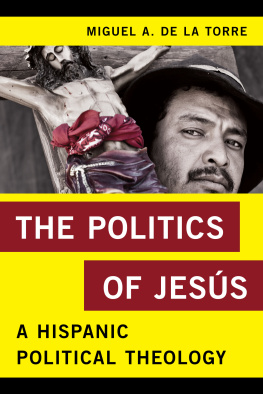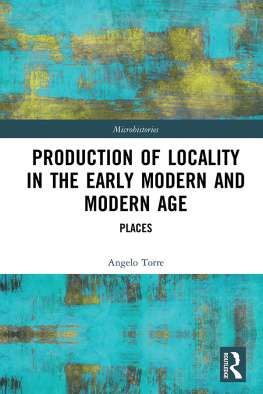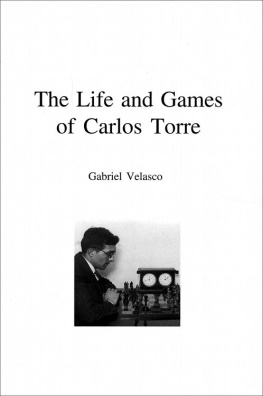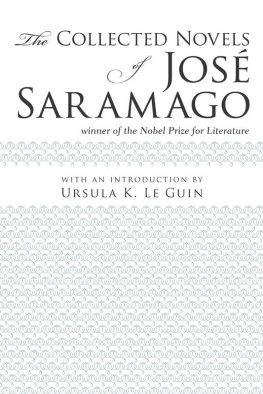Library of Congress Cataloging-in-Publication Data
Torre Curiel, Jose Refugio de la.
Twilight of the mission frontier : shifting interethnic alliances and social organization in Sonora, 17681855/by Jose Refugio De la Torre Curiel.
p. cm.
Includes bibliographical references and index.
ISBN 978-0-8047-8504-4 (hardcover : alk. paper)
1. MissionsMexicoSonora (State)History18th century. 2. MissionsMexicoSonora (State)History19th century. 3. FranciscansMexicoSonora (State)History18th century. 4. FranciscansMexicoSonora (State)History19th century. 5. Indians of MexicoMissionsMexicoSonora (State)History18th century. 6. Indians of MexicoMissionsMexicoSonora (State)History19th century. 7. Social structureMexicoSonora (State)History18th century. 8. Social structureMexicoSonora (State)History19th century. 9. Sonora (Mexico : State)Ethnic relationsHistory18th century. 10. Sonora (Mexico : State)Ethnic relationsHistory19th century. I. Title.
F1346.T67 2012
305.800972'17dc23
2012022744
Stanford University Press
Stanford, California
2012 by the Board of Trustees of the Leland Stanford Junior University All Rights Reserved
No part of this book may be reproduced or transmitted in any form or by any means, electronic or mechanical, including photocopying or recording, or in any information storage or retrieval system without the prior permission of Stanford University Press.
ISBN 978-0-8047-8732-1 (ebook)
Twilight of the Mission Frontier: Shifting Interethnic Alliances and Social Organization in Sonora, 17681855
by
Jos Refugio de la Torre Curiel
Stanford University Press
Stanford, California
and
The Academy of American Franciscan History
Berkeley, California
2012
To Rosy, Mariana, and Diego
CONTENTS
ILLUSTRATIONS
Maps
Tables
)
Graphs
Figure
ABBREVIATIONS
AFPM, AQ
Archivo Franciscano de la Provincia de Michoacn, Fondo Archivo de Quertaro, Celaya, Mexico
AGES
Archivo General del Estado de Sonora, Hermosillo, Mexico
AGI
Archivo General de Indias, Seville, Spain
AGN
Archivo General de la Nacin, Mexico City
AHMNAH, FF
Archivo Histrico del Museo Nacional de Antropologa e Historia, Fondo Franciscano, Mexico City
AHNM
Archivo Histrico Nacional, Madrid
AHZPFSFSM
Archivo Histrico de Zapopan, Provincia de los Santos Francisco y Santiago de Mxico, Zapopan, Mexico
AMH
Archivo de la Mitra de Hermosillo, Hermosillo, Mexico
ARAG
Archivo de la Real Audiencia de Guadalajara, Guadalajara, Mexico
BL
Bancroft Library, Berkeley, California
BNFF
Biblioteca Nacional de Mxico, Fondo Franciscano, Mexico City
BNM
Biblioteca Nacional de Madrid
BPEJ, CM
Biblioteca Pblica del Estado de Jalisco, Coleccin de Manuscritos, Guadalajara, Mexico
Fr. MCC
Fray Marcellino da Civezza Collection (microfilm in Bancroft Library)
MNM
Museo Naval de Madrid
RAH
Real Academia de la Historia, Madrid
RBP
Real Biblioteca de Palacio, Madrid
UAL
University of Arizona Library, Special Collections, Tucson, Arizona
ACKNOWLEDGMENTS
While preparing this book I had the opportunity to share valuable ideas and moments with many people to whom I owe a deep debt of gratitude. From the beginning I received generous support from William Taylor, Jennifer Spear, and Robert Middlekauff, who helped me put my initial ideas into perspective and made important comments and suggestions on an earlier version of the manuscript presented in 2005 as my doctoral dissertation in the Department of History at the University of California, Berkeley. Since then, Professor Taylor has followed closely the evolution of this work. His respectful, critical but supportive, tone in dialogues with others interested in the historiography of the colonial period in Latin America, and the acute attention he devotes to the experiences, practices, and aspirations of many and varied historical subjectsboth individually and collectivelyopened a path that, while often difficult, provides comfort to those who travel it. I have striven to keep my research on this trail but, of course, any deviation is my sole responsibility. I thank Professor Taylor especially for his encouragement at those times when the pressure to finish the manuscript threatened to overwhelm other fundamental aspects of my life.
Various sections of the book benefited from comments by several colleagues. I am grateful to all for their criticisms and suggestions though, of course, all meanderings along or around the topics and issues discussed reflect my own decisions and free them from responsibility for the final result. I wish to express my sincere gratitude to Chantal Cramaussel, Salvador lvarez, Mario Alberto Magaa Mancillas, Cynthia Radding, Robert H. Jackson, Salvador Bernabu, Rose Marie Beebe, Ivonne del Valle, Jessica Delgado, Karen Melvin, Kristin Huffine, and Julia Sarreal. I am also indebted to the Seminario de Instituciones Novohispanas, which gave me the opportunity to share my ideas on frontier societies with other scholars and enrich my study with their timely comments. These academic exchanges deepened the bonds of friendship I share with that seminars current members: Marina Mantilla Trolle, Ignacio Almada Bay, Rafael Diego-Fernndez, Gilberto Lpez Castillo, Isabel Marn Tello, Mara del Valle Borrero Silva, and Isabel Scott Palma.
Steve Hackel, Robert Senkewicz, Susan Deeds, William Taylor, and two anonymous readers generously devoted their time to reading the entire text. Their comments proved useful in refining it and detecting topics that required revisions and greater precision. I thank them all for their interest in this dialogue, and hope that the arguments presented here do justice to their suggestions.
In addition, I am indebted to the institutions that provided support during my research and writing. First, I thank the Academy of American Franciscan History for its interest, from the outset, in encouraging the publication of this book, and for the funding that allowed me to present successive versions in a series of fruitful seminars. Special thanks to Jeffrey Burns, director of the Academy of American Franciscan History, for his patience, kindness, and understanding, which helped me reach this goal. In Mexico, the SEP-CONACyT Fund for Basic Scientific Research provided resources that made it possible to broaden the scope of my work in 20082009 (project number 79262). At the archives and libraries listed in the abbreviations section, the staff responsible for the respective collections were most helpful in facilitating the working materials I required. Without their kind assistance and broad-based knowledge, my visits to those repositories would not have been nearly as productive as they proved to be.
Also, my gratitude goes out to the Department of History at the University of Guadalajara, especially Lilia V. Oliver Snchez and David Carbajal Lpez, who received me there and at key moments provided assistance so that I could fulfill my teaching responsibilities without impeding progress in my research. During the final phase of the writing process, El Colegio de Jalisco offered a place where I could reorganize my materials and thoughts and thus meet the deadline established by the editors.








